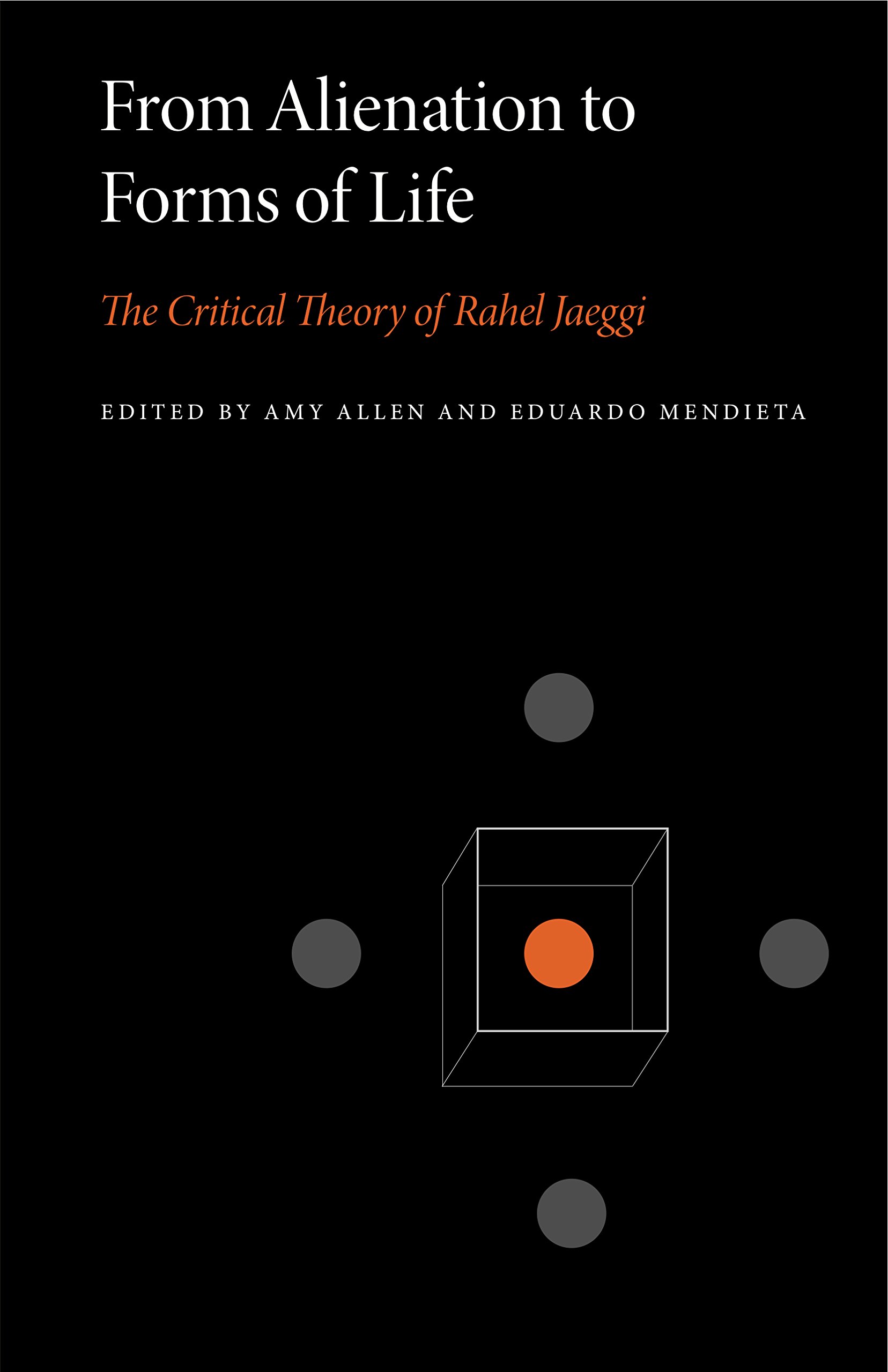

From Alienation to Forms of Life: The Critical Theory of Rahel Jaeggi (Penn State Series in Critical Theory)
G**R
An introduction to and extension of the work of Rahel Jaeggi
This collection of articles came out a symposium devoted to Jaeggi's work. In addition to the papers delivered at the symposium there are new articles by Jaeggi and Daniel Loick, a conversation between Jaeggi and Amy Allen led by Eva von Redecker and a long Reply to my Critics by Jaeggi. Allen and Mendieta also conjure up a wonderful introduction that serves to place Jaeggi within the Frankfurt School tradition, to introduce the central themes of her work and the main points of contention with the symposium participants.Jaeggi herself is a bit of a whirlwind. She is well grounded in the thought of Hegel, Marx, Adorno, Habermas and Honneth (she worked as one of his research assistants for 5+ years). She has also makes use of Dewey, MacIntyre, von Wright, Joshua Cohen, and Ernst Tugendhat.Like many of the Frankfurt School, she is trying to find a way to ground critique on a standard that is both immanent and transcendent. Her particular way of doing this is based on the concept of forms of life. These are initially defined by Jaeggi "complex bundles (or ensembles)of social practices geared to solving problems that are in turn shaped by historical contexts and are normatively constituted" (p. 10 of this volume but see Jaeggi's introduction to her book Critique of Forms of Life).This will seem like something out of Kuhn, Lakatos, MacIntyre or (my choice) William Reddy but the devil is in the details. It is the way that Jaeggi works out this concept using Hegel's ideas of determinate negation and ethical life that give Jaeggi's work its interest. It is also how she uses these ideas in conjunction with her standards of progress or regression that gives her work its critical thrust.Some of the articles in this volume serve as a fine introduction to Jaeggi. Besides the editor's introduction and Jaeggi's own article and Reply there are the contributions by Max Pensky, Frederick Neuhouser and Rocio Zambrana that all take the time to do excellent explications of part of Jaeggi's work before they offer any criticisms.The Q and A session with Allen and von Redecker is also very useful in terms of really probing some of the differences between Jaeggi and Allen (an important thinker in her own right- her The End of Progress is an important critique of Habermas and Honneth). One of the things that I appreciate about both of these thinkers is they way they don't try to hide weaknesses in their own thought. They are very comfortable admitting that they have more work to do.Of course, not all of the contributions are of the same quality. Christman and Celikates have some insight in Jaeggi's work but I found their criticisms to be off target. Some of Jaeggi's terms of art, e.g., the way she uses progress and learning processes seems to lead some of her critics off on tangents.I have not read much Jaeggi before reading this book. I will read the Critique of Forms of Life next. She strikes me as something who is working on an important and intractable problem and who does so in a fashion both learned and original. I found this volume by Allen and Mendieta to be a useful guide to Jaeggi's work.
Trustpilot
2 weeks ago
1 month ago